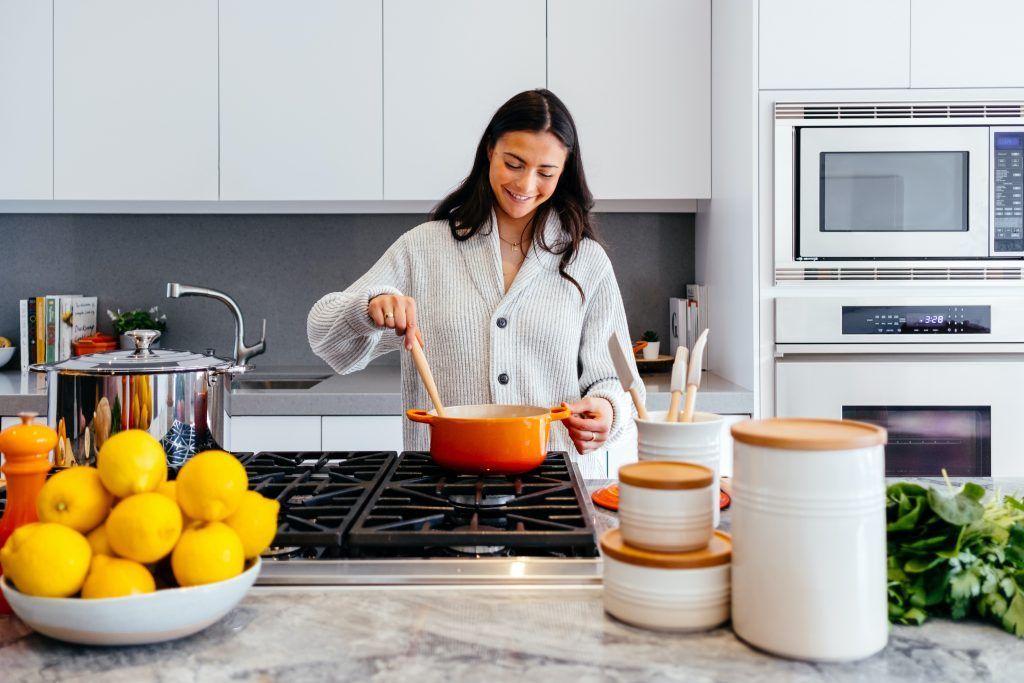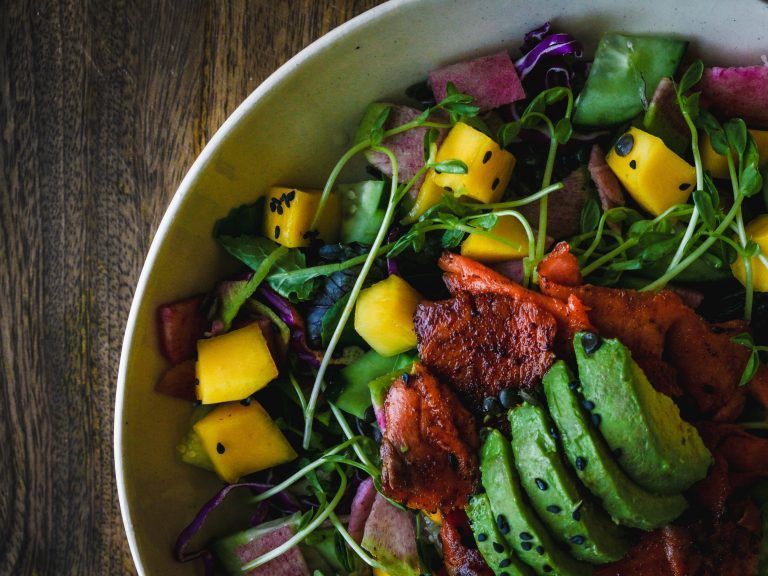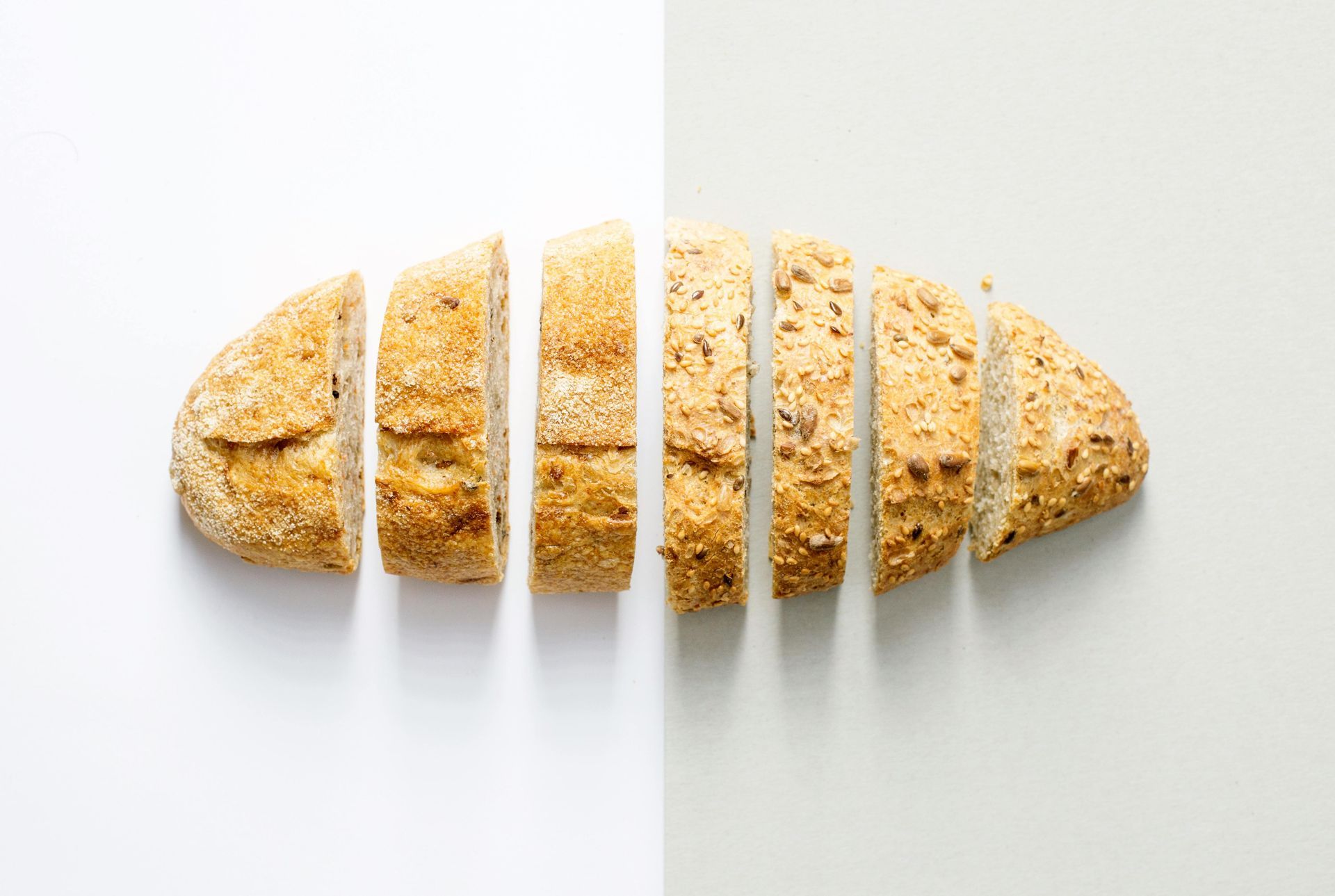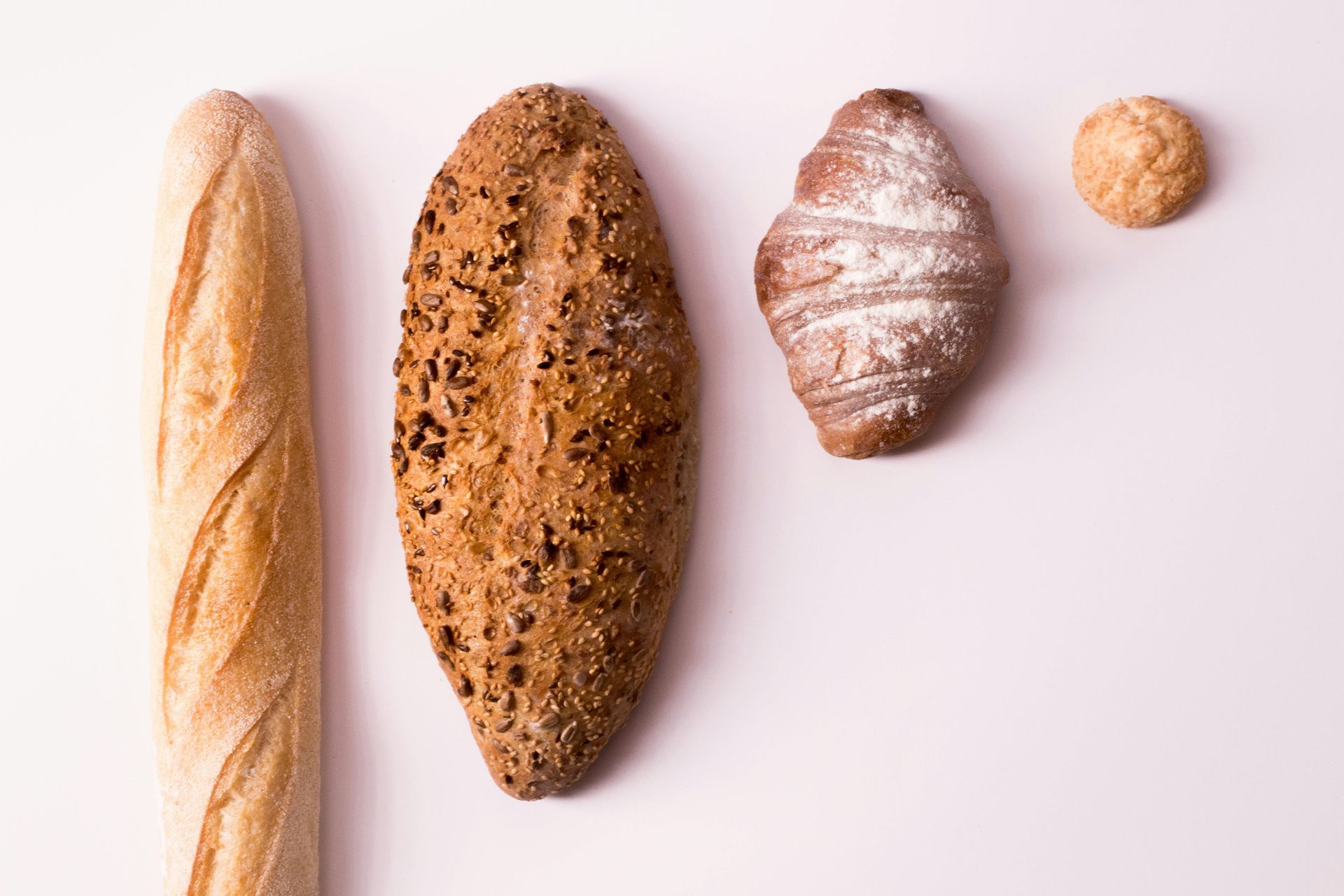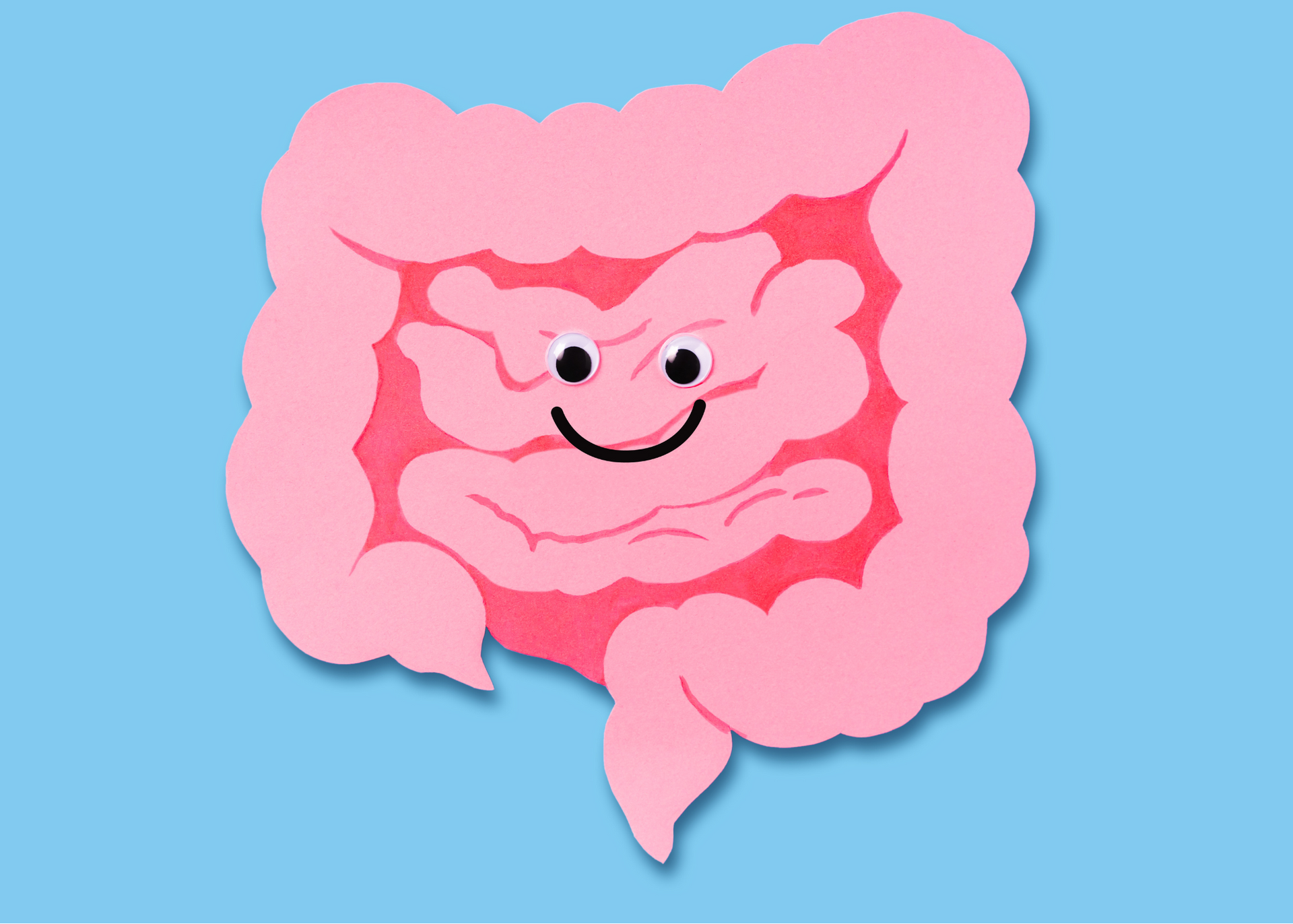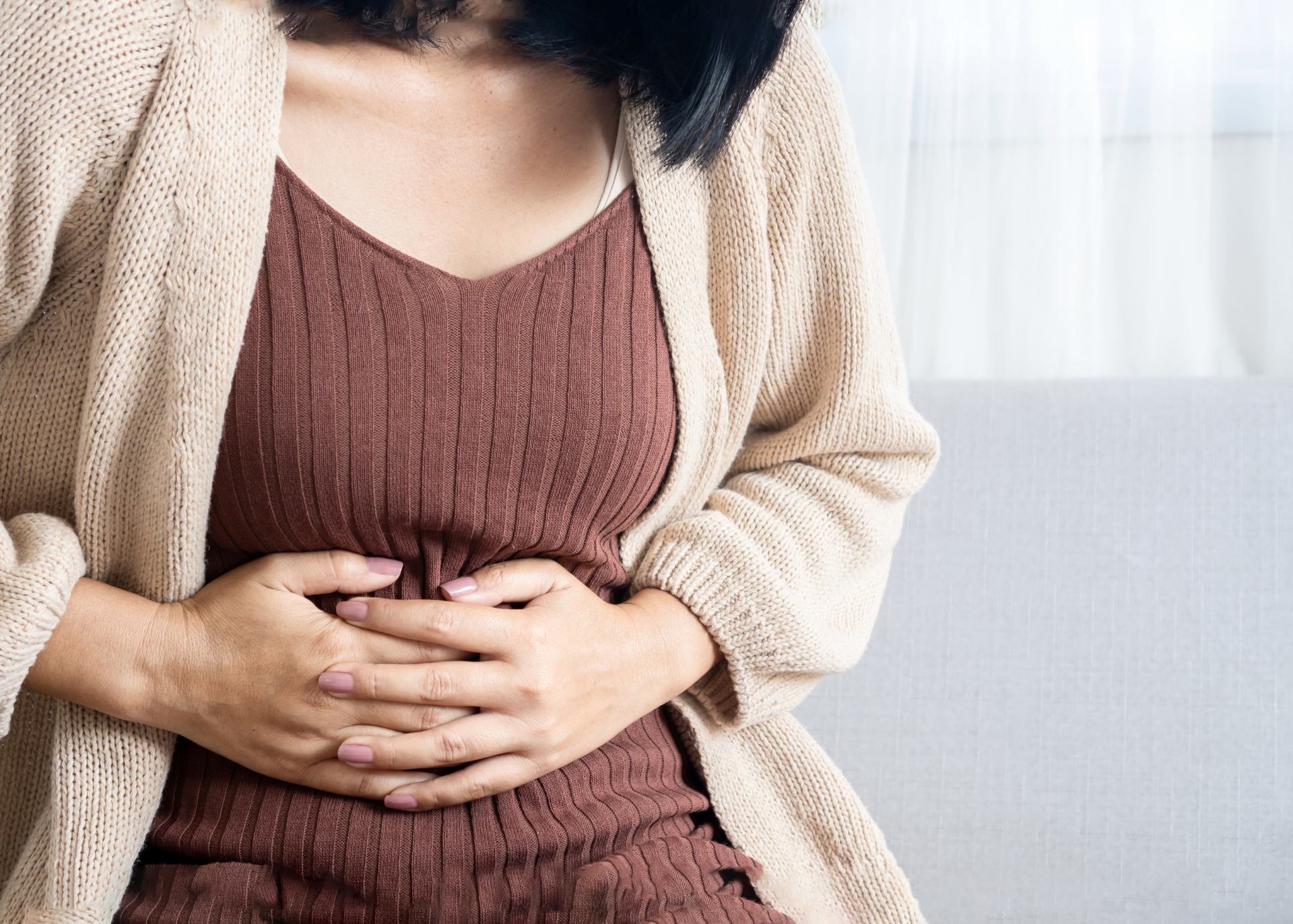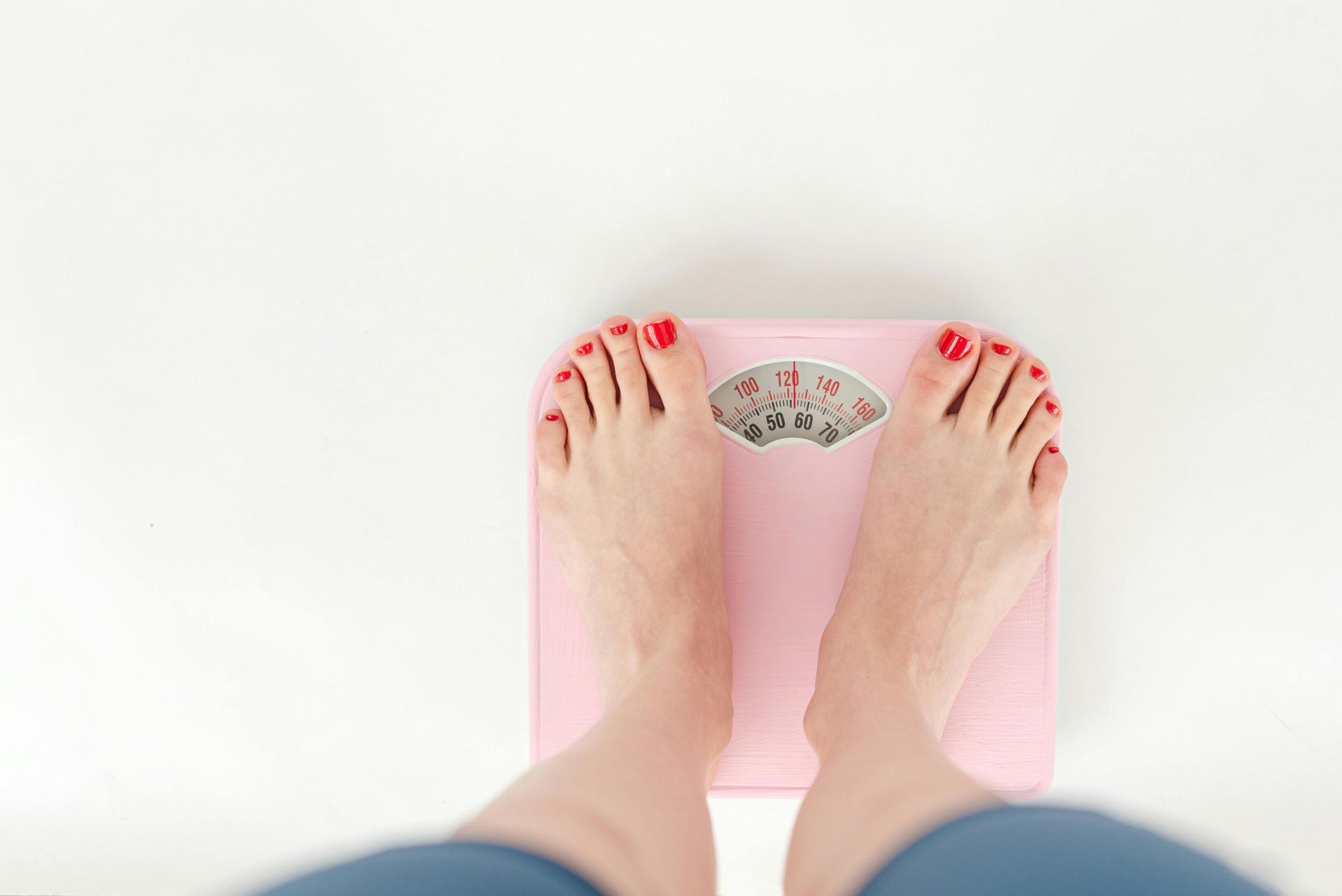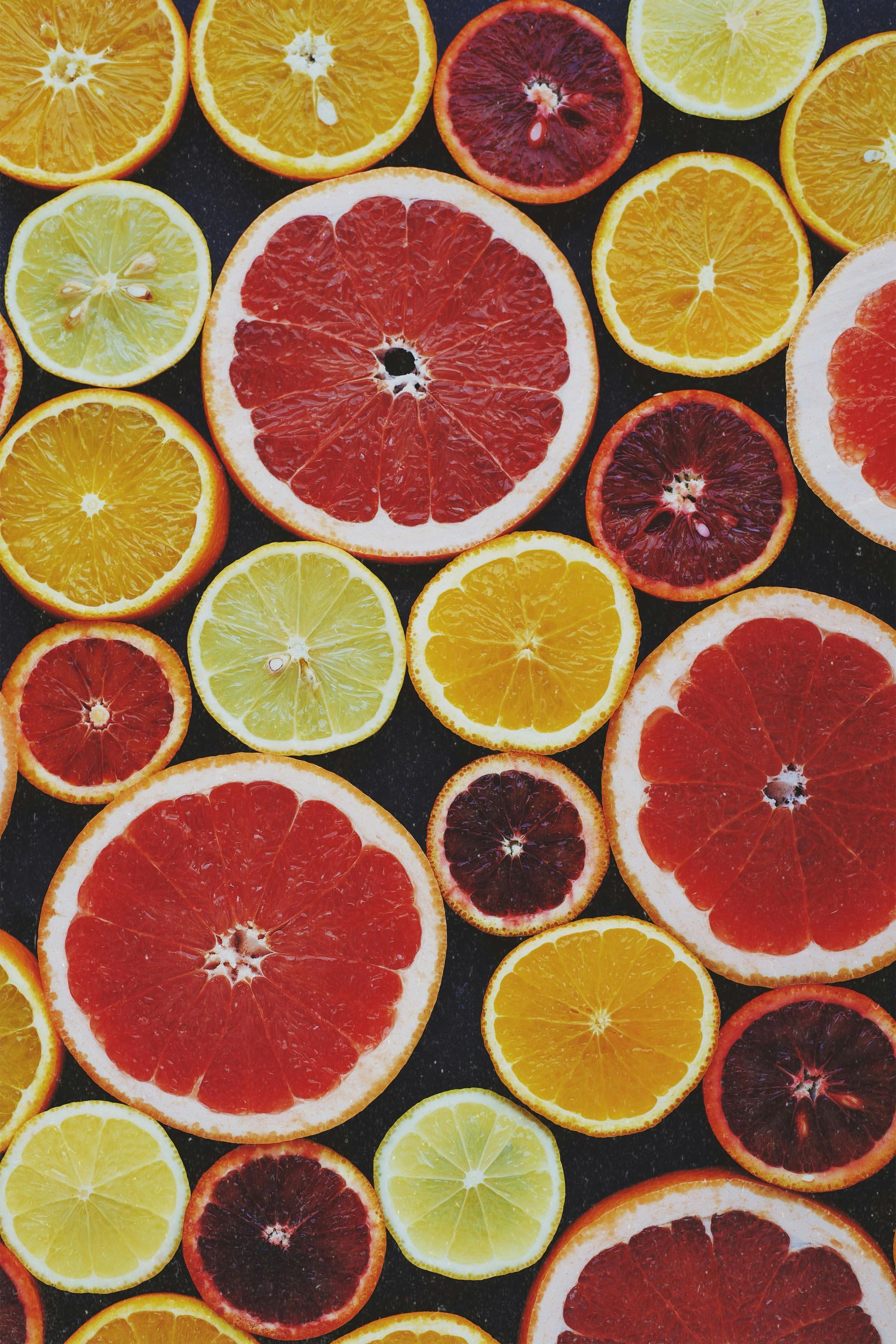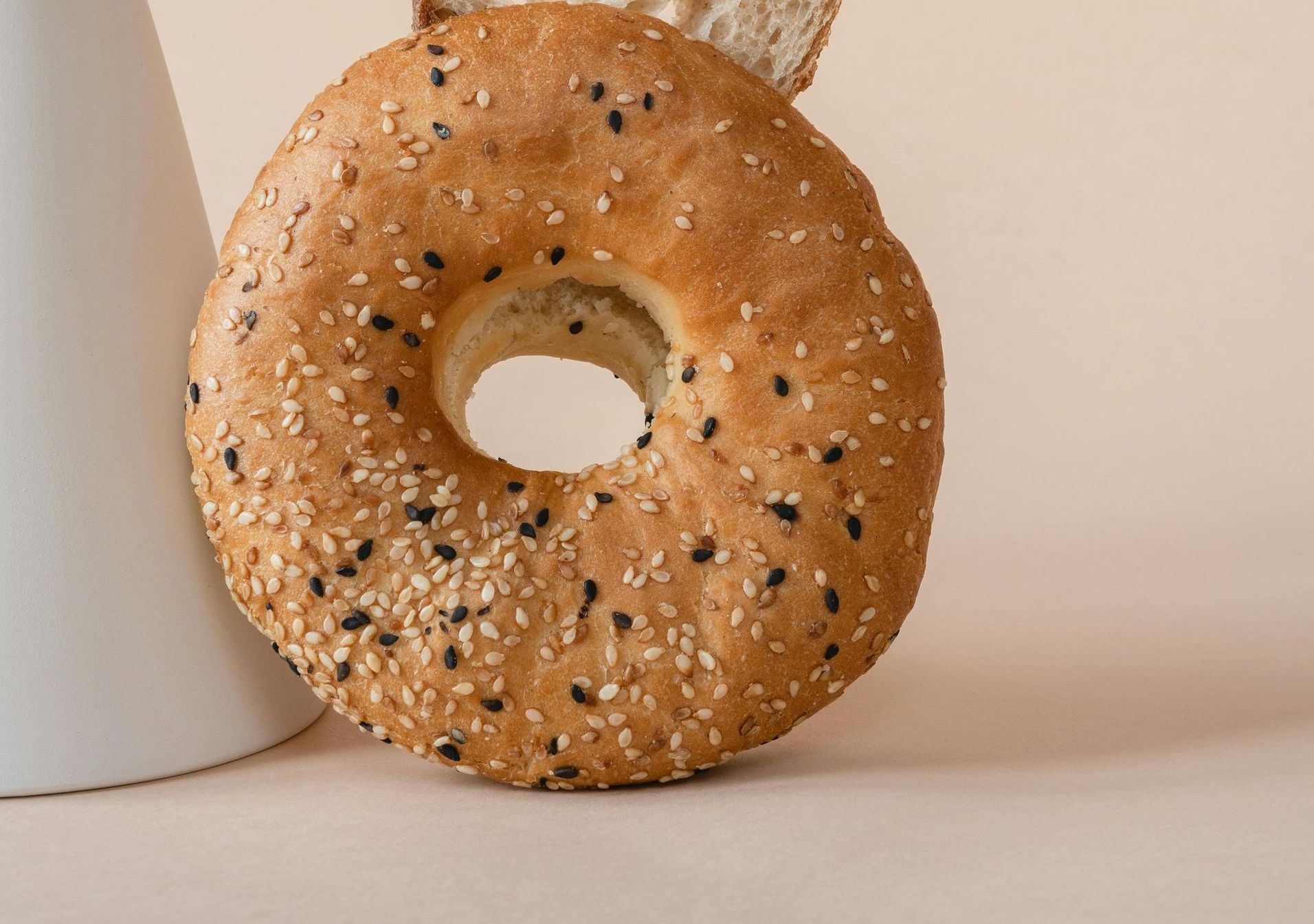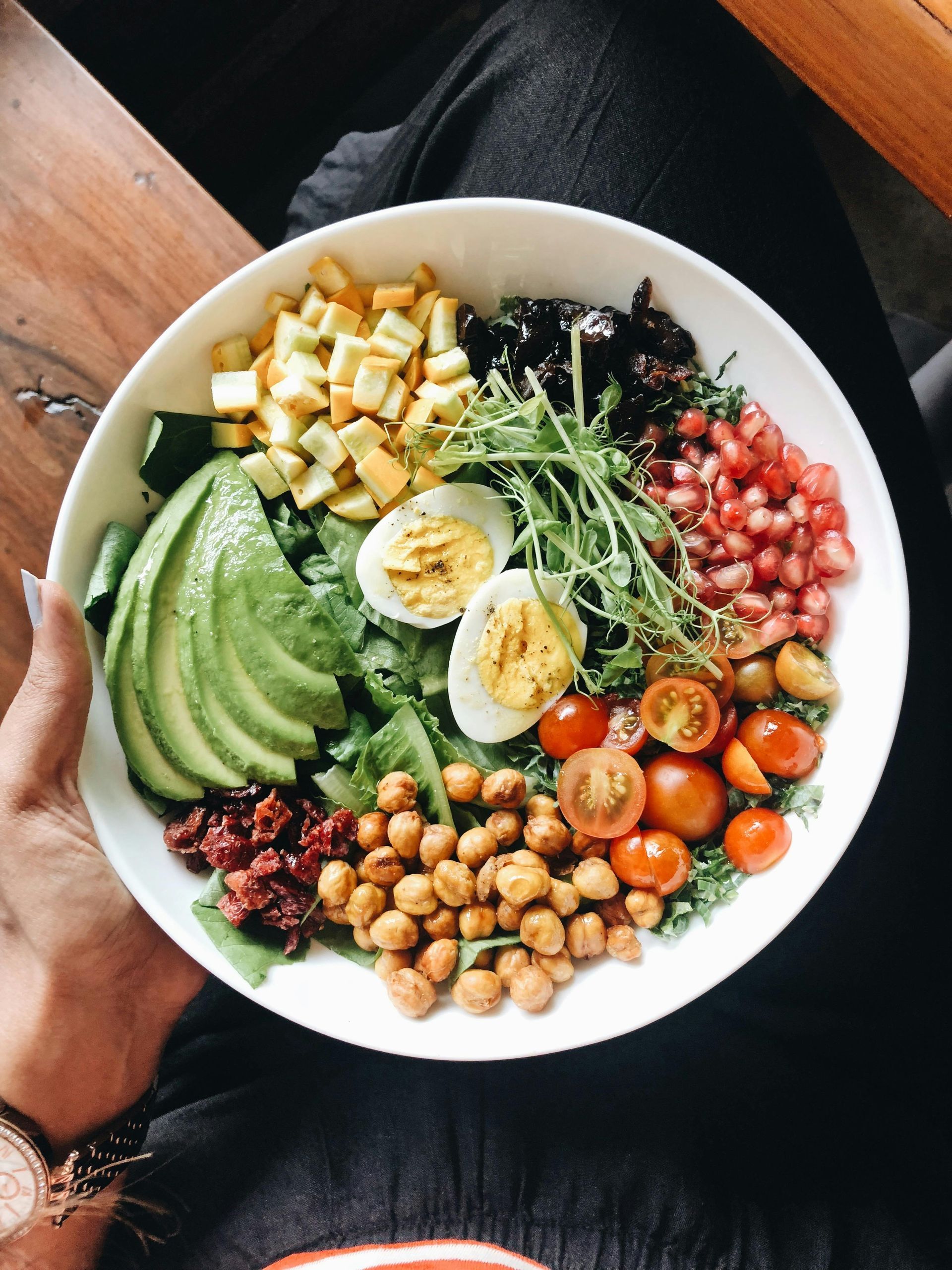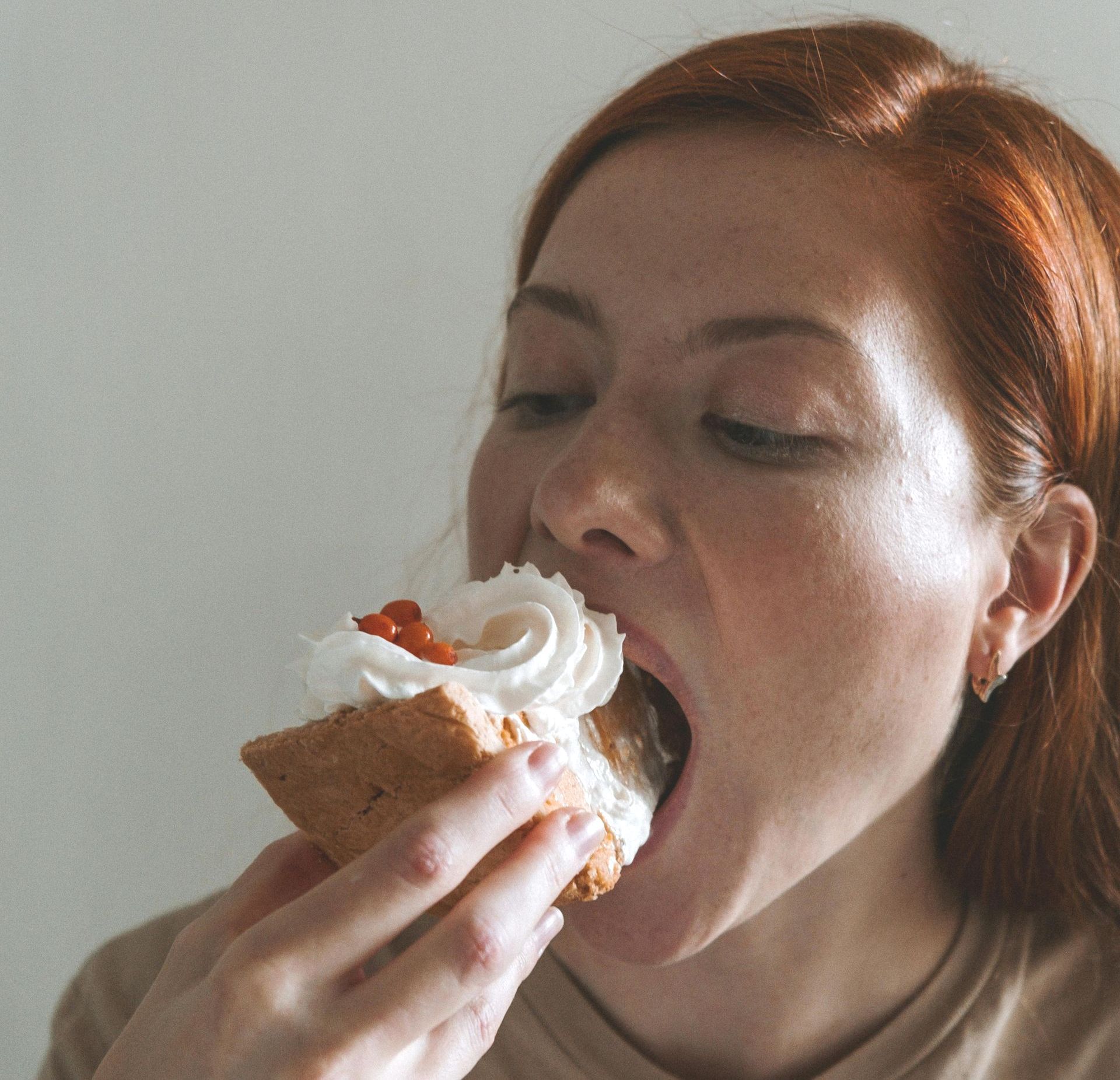How to Protect Your Gut from Antibiotics, According to a Dietitian
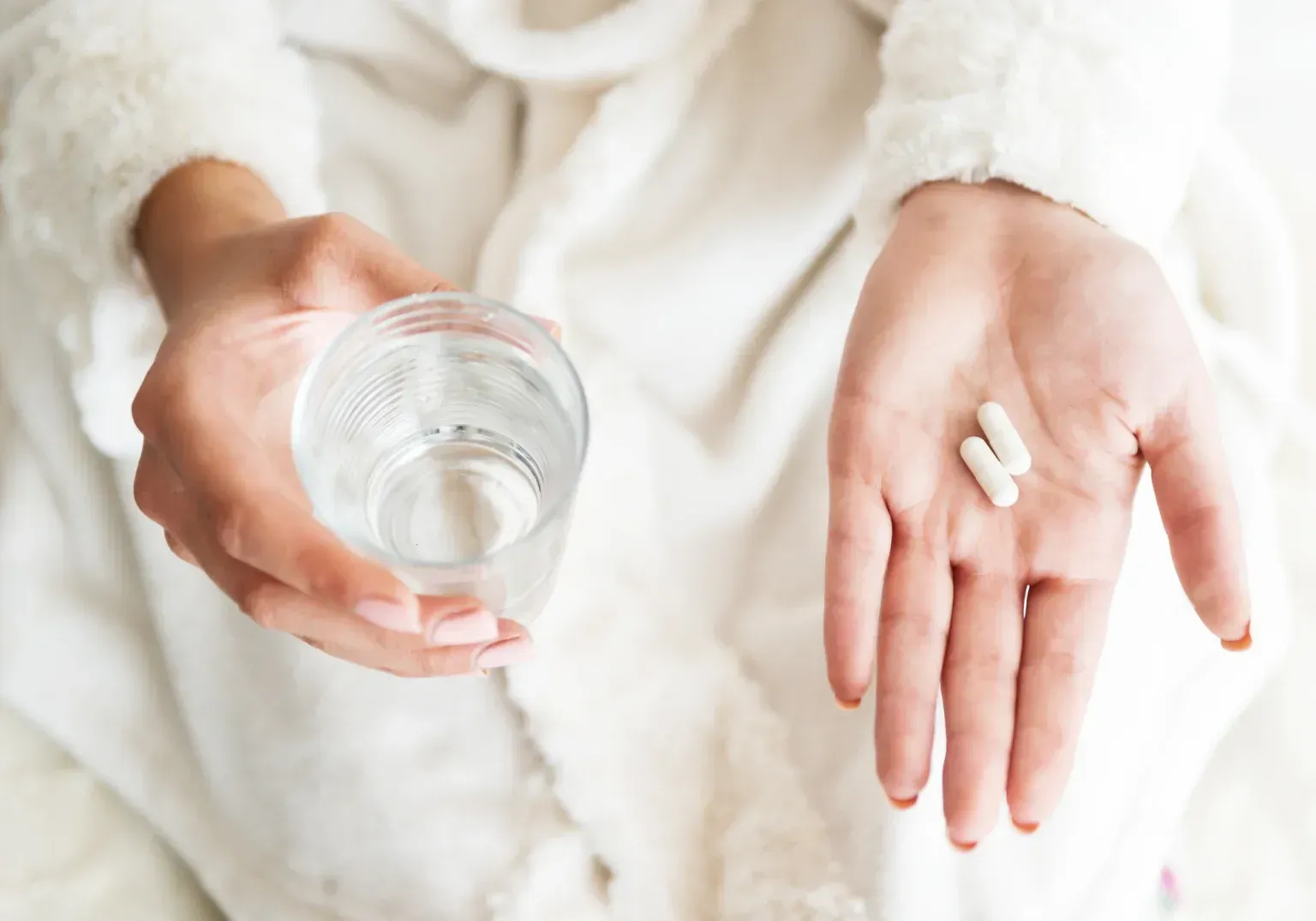
The Danger of Antibiotics
I haven’t taken antibiotics in seven years, and for a good reason.
Antibiotics can destroy bad bacteria, but they ALSO destroy good bacteria in the process. Research shows good gut bacteria can remain low for over six months after you finish antibiotics, and sometimes they never recover!
Why do gut bacteria matter?
We have more bacterial cells in our body than human cells, so it’s no surprise these bacteria have a HUGE impact on our health.
Gut bacteria imbalances:
- Make the gut lining more susceptible to damage: This means you are at a higher risk for developing intestinal permeability aka “leaky gut”. Leaky gut can lead to food sensitivities, nutrient deficiencies, and autoimmune conditions.
- Lead to digestive issues: You are more likely to experience bloating, constipation, diarrhea, acid reflux, abdominal pain, nausea, and abdominal cramping.
- Increase your risk for gut conditions: This includes irritable bowel syndrome (IBS), Crohn’s Disease, and Ulcerative Colitis.
- Affect your weight: Research shows imbalanced gut bacteria contribute to weight gain and make it difficult to lose weight.
- Cause blood sugar instability: Research links imbalanced gut bacteria to unbalanced blood sugars, as well as both type 1 and type 2 diabetes.
- Impact your Brain: A long nerve called the vagus nerve connects the gut and the brain. If your gut bacteria are imbalanced, it can lead to significant changes in the brain including brain fog, mood swings, anxiety and depression.
- Fuel sugar cravings: The bacteria in your gut are good at manipulating you into eating the food that feeds them. If you have an overgrowth of yeast, you will crave sugar. When you eat sugar, the yeast will grow, leading to a never-ending cycle of stronger and stronger sugar cravings.
- Make it harder to sleep: Imbalanced gut bacteria can affect your circadian rhythm, making it harder to fall asleep at night and making you sleepier during the day.
- Suppresses your immune system: Over 70% of your immune system is in your gut! When your gut bacteria are imbalanced, your immune system takes a huge hit.
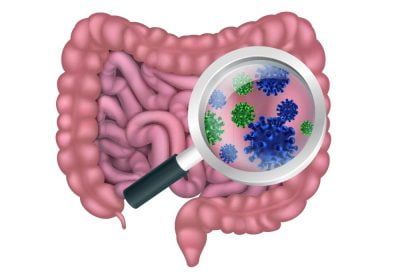
Should I Ever Take Antibiotics?
Research shows about 1 in 3 antibiotic prescriptions is unnecessary. Most of these unnecessary antibiotics are prescribed for viral illnesses. Viral illnesses include common colds, viral sore throats, bronchitis, and viral sinus and ear infections. Antibiotics are not helpful in these cases because antibiotics destroy bacteria, not viruses.
So the next time you come down with a cold, don’t rush to a clinic for a Z-pack.
So should you ALWAYS say no to antibiotics?
Nope!
I am proud I practice Functional Medicine and help women heal their gut and balance their hormones in a natural way using nutrition, supplements and lifestyle changes.
But in some cases, medication (including antibiotics) is necessary and life-saving.
I recently got the flu and it started to turn into pneumonia. Pneumonia can be life-threatening, so I swallowed my pride and took antibiotics.
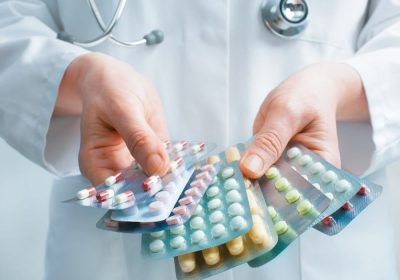
How to Protect your Gut While Taking Antibiotics
If you find yourself in a situation where antibiotics are necessary, I have good news.
There are five ways you can protect your gut to avoid digestive issues while taking the antibiotics and prevent long-term health issues.
Probiotic supplements
There are specific probiotic supplements that support the gut while on antibiotics.
A stand-alone probiotic supplement called Saccharomyces Boulardii : Research supports 250-500 mg (5-10 Billion CFU) of S Boulardii two to four times per day. I took 500 mg with meals during antibiotics, and then took 500 mg once per day for two weeks after I finished antibiotics.
A probiotic blend that contains Lactobacillus acidophilus, Lactobacillus rhamnoses , and Bifidobacterium lactis : I took one capsule of a 100 Billion CFU blend once per day for three weeks.
It is very important to choose high-quality probiotics. There are many probiotics available that are poor quality. They won’t do your gut much good, and in some cases they can actually make things worse. Work with a healthcare provider like a Registered Dietitian that can prescribe probiotic supplements that actually work.
There is still debate on when to take probiotics. Some healthcare professionals recommend taking probiotics at least two hours away from antibiotics, while others say it makes no difference. There is no research to support either claim, so I recommend focusing on taking the probiotic supplements every day rather than getting caught up in the exact timing.
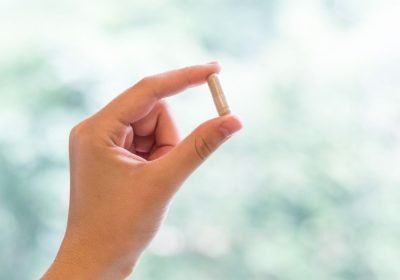
Probiotic foods
Probiotic foods are a great way to get additional probiotic strains. Probiotic foods are foods that contain good bacteria. I included at least one serving per day.
Probiotic foods include:
- Sauerkraut (I love Wildbrine red beet and cabbage)
- Kimchi
- Pickles
- Other pickled vegetables
- Kefir
- Yogurt (both dairy-based and dairy-free versions)
- Kombucha
Tip: When shopping for pickled foods, look for foods pickled with salt and not vinegar. They will be refrigerated, keeping the probiotics safe and sound. Pickled vegetables at room temperature have been heated to high temperatures to keep them shelf-stable, which destroys the probiotics.
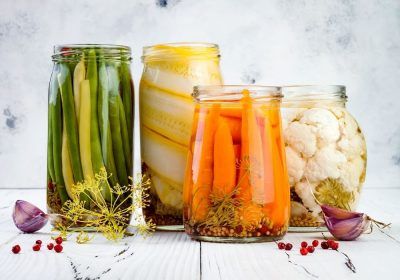
Prebiotic foods
Prebiotic foods are specific fibers that feed good bacteria in your gut. I included prebiotic foods at every meal to make sure the good guys could flourish and multiply.
Prebiotic foods include:
- Ground flaxseed
- Beans/lentils
- Onions
- Garlic
- Leeks
- Jicama
- Apples
- Asparagus
- Kiwi
- Artichokes
- Almonds/almond butter (Trader Joes salted almond butter is my fave)
- Bananas
- Oats
- Rice
- Hearts of palm
Here are a few practical ways to incorporate these:
- Add beans/lentils to soups, cooked meals, and salads
- Add ground flax to yogurt, smoothies, chia seed pudding, or overnight oats
- Cook with lots of onion and garlic!
- Snack on an apple or banana + almond butter
I recommend eating a variety of these prebiotic foods. Eating a variety of prebiotic fibers supports a diversity of gut bacteria, which is the goal.
If you feel like eating bland foods while you are sick, incorporate flaxseed, bananas, oats, rice, and almond butter. Sautéed garlic and onion can easily be added to soups. Once you’re feeling better you can incorporate the rest!
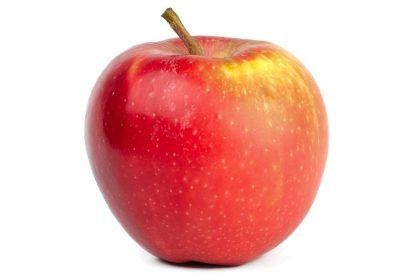
Bone Broth
Bone broth is great for gut health because its high glutamine and glycine content. These compounds reduce inflammation and promote gut healing.
The glycine in bone broth also supports liver health, which is important while on antibiotics because antibiotics can cause damage to the liver.
If you experience nausea from your antibiotics, you can easily add fresh ginger or ginger powder to your bone broth to help. I love adding a frozen ginger cube (available at Trader Joes and H-E-B) so I don’t have to peel and slice the ginger myself.
My favorite brands of bone broth are Kettle and Fire, Epic, Bonafide, and Bare Bones. They are typically found on grocery store shelves, but can sometimes be found in the frozen section too.
While on antibiotics I drank a cup of warm bone broth each day. I warmed it up on the stovetop and sipped on it while cooking my dinner each night.
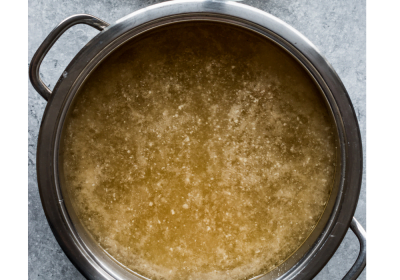
Avoid NSAIDs
NSAIDs (non-steroidal anti-inflammatory drugs) like ibuprofen, Motrin, Advil, and aspirin may be tempting to take while you’re sick, but they damage the gut and should be avoided at all costs.
Normally the stomach has three defenses against digestive juices.
- There is a mucus that coats the stomach lining and shields it from stomach acid.
- A chemical called bicarbonate neutralizes stomach acid.
- Blood circulates around the stomach lining to support gut cell renewal and repair.
NSAIDs hinder ALL THREE of these protective mechanisms! With the stomach’s defenses down, digestive juices can damage the stomach lining.
Instead of taking ibuprofen, focus on eating anti-inflammatory foods and consider taking a high-quality turmeric supplement. If you decide to take turmeric, make sure you take it with food and try to incorporate black pepper (fat and black pepper enhance absorption).
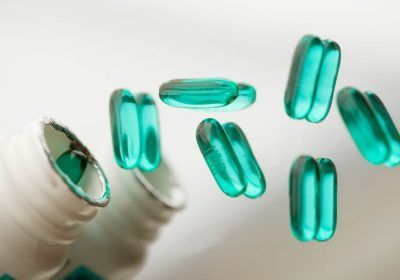
How did things end up going for me?
The antibiotics cleared up my infection and allowed me to avoid a serious case of pneumonia, and incorporating my five tips above kept my gut in tip-top shape!
I had mild nausea when I took my first two doses of antibiotics, but it only lasted about fifteen minutes both times because I ate ginger right away (I added it to my bone broth the first time, and added it to a smoothie the second time).
Aside from the nausea, I had zero digestive issues while taking the antibiotics and my gut continues to feel great weeks later! I used to deal with chronic digestive issues , and I’m so thankful those issues are a thing of the past so I can focus on living my life and enjoying it.
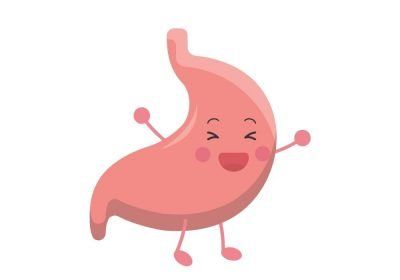
Let ‘s Recap
Here is a recap of my top tips for protecting your gut while on antibiotics:
- Take probiotic supplements Saccharomyces Boulardii, Lactobacillus acidophilus, Lactobacillus rhamnoses, and Bifidobacterium Lactis.
- Eat probiotic foods to boost healthy gut bacteria, and make sure these are refrigerated.
- Eat prebiotic foods to feed good bacteria already in your gut.
- Drink bone broth to promote gut healing and support your liver.
- Avoid NSAIDs to minimize gut damage, and use anti-inflammatory foods and a turmeric supplement instead.
Have you taken multiple rounds of antibiotics?
If you take antibiotics every 5+ years, using these tips should be enough to keep your gut healthy and happy.
But – if you take antibiotics more often than this, your gut bacteria are probably extremely imbalanced.
Signs your gut bacteria are imbalanced:
- Bloating
- Gas
- Constipation/diarrhea
- Nausea
- Acid reflux
- Abdominal pain
- Abdominal cramping
- Food sensitivities
- Sugar cravings
- Carb cravings
- Acne
- Unexplainable weight gain
- Brain fog
- Anxiety
- Depression
- Difficulty sleeping
- Fatigue
- Getting sick frequently
- Autoimmune conditions
Are you dealing with any of these symptoms?
Continue Reading

